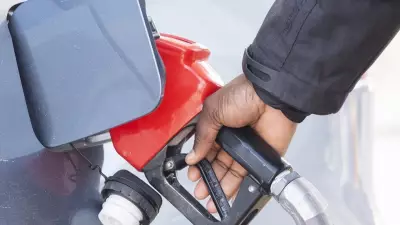
Jamaica's resilient farming and fishing communities are confronting yet another environmental catastrophe as Hurricane Melissa pummeled the island nation with relentless fury. The storm's devastating passage has left agricultural lands submerged and fishing fleets decimated, dealing a crippling blow to vital food security and economic sectors.
Agricultural Heartland Underwater
Torrential rainfall measuring several feet has transformed Jamaica's fertile farmlands into vast lakes, destroying countless crops at their peak growing season. Staple foods including bananas, vegetables, and root crops have been completely wiped out in many regions, while export-oriented produce like coffee and sugarcane face unprecedented damage.
The timing couldn't be worse," explained one agricultural expert. "Many farmers were just recovering from previous hurricane seasons and had invested heavily in new plantings. This represents not just lost crops but lost livelihoods and mounting debt."
Fishing Industry Decimated
Coastal communities report near-total destruction of fishing infrastructure, with boats smashed against shores, gear lost to turbulent seas, and critical landing facilities rendered unusable. The storm's timing during prime fishing season means many fishers have lost their primary income source for months to come.
"Our entire community depends on the sea," shared veteran fisherman Marcus Brown from a coastal village. "Now our boats are destroyed, our equipment is gone, and we don't know how we'll feed our families, let alone rebuild."
Compounding Crises
What makes Hurricane Melissa particularly devastating is its compounding effect on previous natural disasters. Many affected regions were still rebuilding from earlier storms, with farmers and fishers operating on thin margins and limited resources.
The Jamaican government has initiated emergency assessments, but early estimates suggest recovery will require substantial international assistance and months of intensive effort.
Climate Change Connection
Meteorologists note that Hurricane Melissa's intensity and rapid development follow patterns consistent with climate change projections for the Caribbean region. Warmer ocean temperatures are fueling more powerful storms that develop faster and carry increased moisture, leading to catastrophic rainfall totals.
As cleanup efforts begin, the pressing question remains: How can vulnerable island nations build resilience against increasingly frequent and intense weather events?





